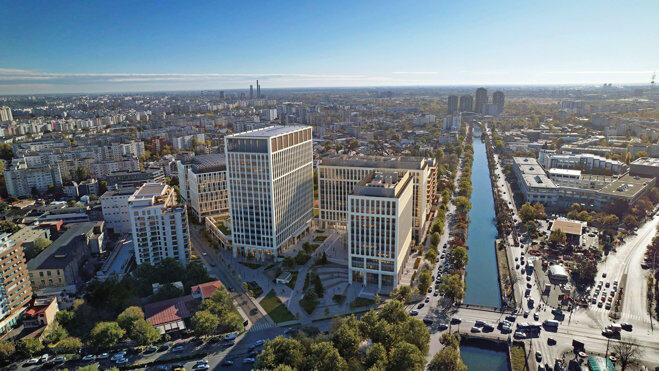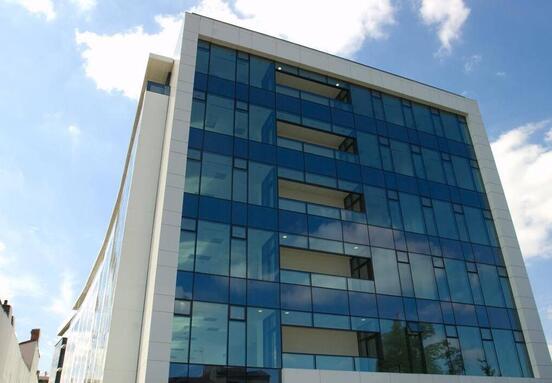The evolving landscape of Romania's office market
After four years of adjustments, Romania's local office market is stabilizing, with a clear strategic shift towards quality over volumetric expansion. Bucharest continues to stand as one of the largest markets in Central and Eastern Europe, boasting a modern office stock exceeding 3.4 million square meters.
While the first half of 2025 saw a total rental transaction volume of just over 100,000 square meters—a third less than the previous year, with new demand accounting for only 40,000 square meters—this trend underscores a more deliberate and discerning approach from businesses.
According to Colliers, companies remain prudent in their expansion, yet interest in modern, energy-efficient, and strategically located spaces is remarkably high. This signals a market that, while less focused on rapid growth, is keenly attuned to the intrinsic value of quality infrastructure.
Why quality and sustainability are key
The imperative for quality and sustainability is now a cornerstone of Romania's office market. More than 93% of buildings delivered in the last seven years hold green certifications, reflecting a strong commitment to environmental responsibility. This focus translates directly into occupancy rates: new buildings boast a vacancy rate below 5%, a stark contrast to the over 18-20% seen in buildings older than 15 years.
The prevailing trend involves the consolidation and modernization of existing buildings, alongside proactive adaptation to decarbonization requirements. Tenant criteria have expanded far beyond just price, now encompassing critical factors such as metro access, comprehensive employee facilities, and the overall quality of the work environment. Buildings offering integrated "community" spaces report an impressive vacancy rate of just 7%, highlighting the growing importance of amenities that foster collaboration and well-being.
Prime office rents and landmark developments
The premium segment of the market is flourishing, with top-tier office rents in Bucharest's central areas now exceeding 22 euro/sqm/month. This upward trend is further bolstered by the emergence of significant new projects, signaling a strong return of developer confidence and an investment in high-quality assets.
Spotlight on new premium projects:
One Technology District (One United Properties): Envisioned as a premium office hub, this development will integrate residential and commercial functionalities, creating a vibrant, mixed-use environment.
The Arc (PPF Real Estate): This project is set to deliver 30,000 sqm GLA of premium office space, backed by an investment exceeding 60 million euro and a strong emphasis on sustainability.
Timpuri Noi Square Phase 2 (Vastint România): Adding another 60,000 sqm GLA of office space, this phase will also feature Romania's largest integrated food hall within an office building, bringing the complex's total to an impressive 112,000 sqm.
These developments share common characteristics: they are premium, highly efficient, sustainable, and often mixed-use, with anticipated completion around 2026. They represent the new benchmark for office spaces in Romania.
Looking ahead: predictability and flexible solutions
Developers emphasize the crucial role of legislative predictability in sustaining investment momentum. In the medium term, Bucharest's modern office stock is projected to surpass 3.5 million square meters, with quality remaining the paramount determining factor for both developers and tenants.
The rise of flexible workspaces:
Flexible workspaces are emerging as a strategic solution for many businesses, currently representing 2.3% of the total modern office stock in Bucharest. The average rent for a private office within a flexible space in Bucharest is approximately 300 euro per month, significantly more affordable than in many other major European cities.
This cost-effectiveness, combined with inherent flexibility, makes these spaces increasingly attractive. Beyond the capital, regional markets such as Cluj-Napoca, Iași, and Timișoara are also actively attracting operators of flexible office solutions, expanding options for businesses across the country.
Source: businessmagazin.ro







